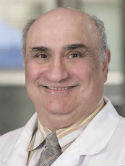Interim implant-supported resection prosthesis following fibula free flap reconstruction of the arch with immediate implants: A novel approach for the oncologic patient Journal Article
| Authors: | Rosen, E. B.; Ahmed, Z. U.; Habib, A. A.; Huryn, J. M.; Randazzo, J. D.; Cracchiolo, J. R.; Matros, E.; Nelson, J.; Allen, R. J. Jr |
| Article Title: | Interim implant-supported resection prosthesis following fibula free flap reconstruction of the arch with immediate implants: A novel approach for the oncologic patient |
| Abstract: | Oral cancer treatment involving the maxilla and/or mandible often results in esthetic and functional deficits that can diminish the patient's quality of life. As a result, expeditious reconstruction of the defect and dental rehabilitation is desirable. Dental rehabilitation shortly after reconstruction with an osteocutaneous free flap and resection prosthesis is a persistent challenge for patients with oncologic defects where immediate dental rehabilitation is not a possibility. Additionally, conventional prosthesis fabrication techniques are impractical or impossible due to postoperative anatomical changes and limitations in clinical armamentarium. To address these limitations, a technique and a novel implant-supported prosthetic workflow for the oncologic patient were developed to provide interim dental rehabilitation for such clinical situations. This article describes the prosthesis fabrication technique, reports short term outcomes, and evaluates patient-reported quality-of-life outcomes using the FACE-Q Head and Neck Cancer Module. |
| Keywords: | jaw |
| Journal Title: | International Journal of Periodontics & Restorative Dentistry |
| Volume: | 40 |
| Issue: | 6 |
| ISSN: | 0198-7569 |
| Publisher: | Quintessence Publishing |
| Date Published: | 2020-11-01 |
| Start Page: | 861 |
| End Page: | 867 |
| Language: | English |
| ACCESSION: | WOS:000587619300013 |
| DOI: | 10.11607/prd.4675 |
| PROVIDER: | wos |
| PUBMED: | 33151192 |
| PMCID: | PMC8383382 |
| Notes: | Article -- Source: Wos |
Altmetric
Citation Impact
BMJ Impact Analytics
MSK Authors
Related MSK Work











